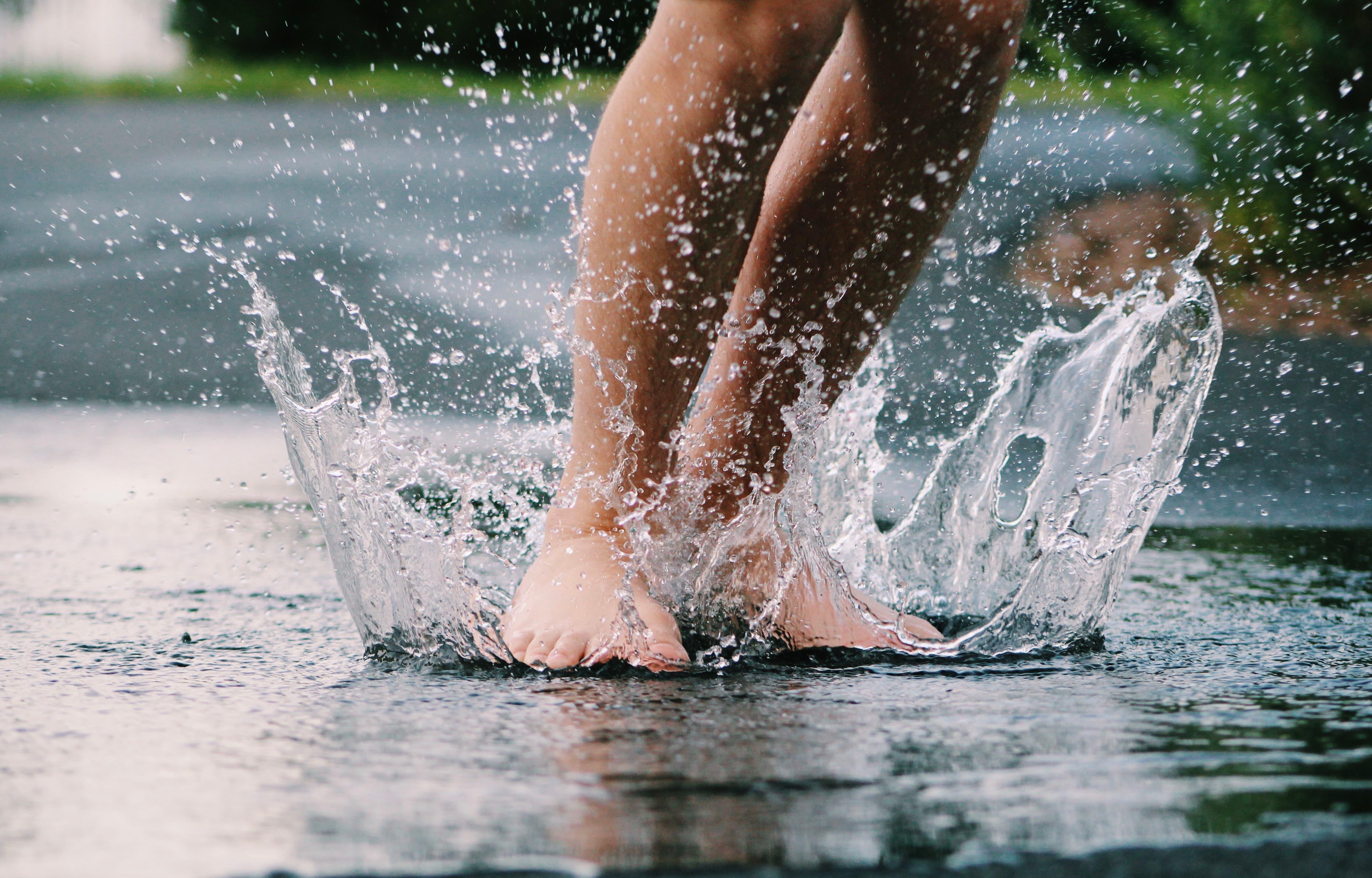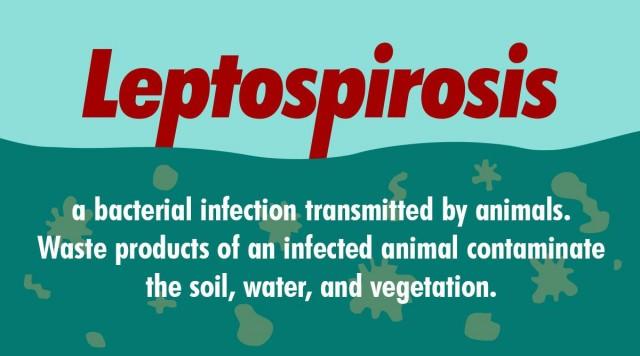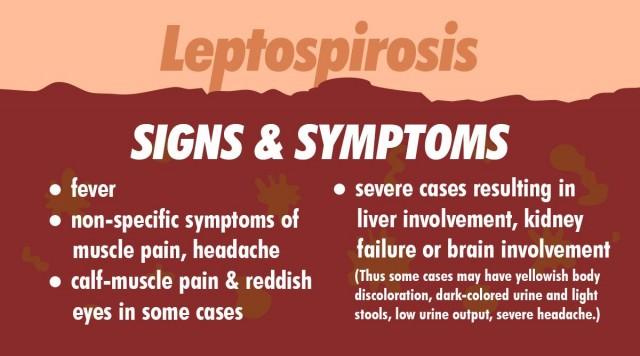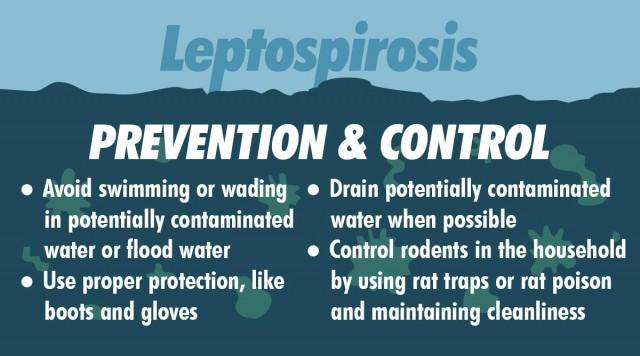DOH it right for the family: Fight leptospirosis

The rainy season is a welcome change from the heat of the summer, but it can also bring a new set of problems that every parent should be aware of. News headlines every year talk about floodwaters posing great challenges to the safety and health of schoolchildren, like wading in dirty water or classes amidst the floods. This year is no different. Floodwaters can bring diseases from bacteria or viruses that any parent would be concerned about; of which the most common is leptospirosis.

What is leptospirosis?
You or a member of the family can be exposed to leptospirosis when exposed to floodwaters and contaminated water or mud, particularly when you have broken skin or open wounds. The disease comes from waste products of infected animals especially rats, which contaminate the soil, water, or vegetation. When the bacteria comes in contact with a wound or broken skin, or even mucous membranes in the eyes, nose, sinuses, or mouth, then leptospirosis can be transmitted. Aside from floodwater being the most common way, it can also be contracted from consuming food or water that is contaminated with the bacteria.
If you’re in a situation where possible exposure to contaminated water cannot be helped, like a sudden downpour that brings floods, remember to wash with soap and water the parts of your body that have come in contact with the waters.

Observe for the signs of fever, muscle pain, and in some cases, calf muscle pain and reddish eyes. Don’t wait for it to get severe, because these cases can cause liver or kidney problems. Early diagnosis and treatment can prevent any complications, and it is important to consult your doctor or go to the nearest DOH health center when you are in doubt about any health condition. Prophylaxis or prevention from Leptospirosis will be done by prescribing Doxycycline capsules to the person exposed to the contaminated water.

How is leptospirosis prevented?
To prevent you or your family from contracting leptospirosis, remember the following:
- Avoid swimming or wading in water that may be contaminated with the Leptospira bacteria in urine of infected animals.
- Use protective gear like boots, and make sure wounds are completely covered or healed, if you are in potential contact with contaminated sources.
- Always maintain cleanliness and always throw out or drain contaminated or stagnant water. This can prevent a variety of diseases and keep away pests that can bring disease, particularly rats.
- Always ensure the cleanliness and safety of the food and water you consume.
Stay vigilant and remember to DOH it right, in order to be safe from diseases like leptospirosis this rainy season.
Consult a health professional if you have any questions or call the Department of Health hotlines for more information:
711-1001
711-1002




